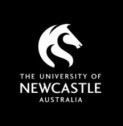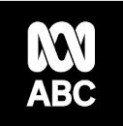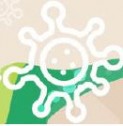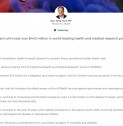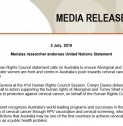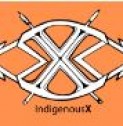The National Indigenous Cancer Network (NICaN) is a partnership between the Menzies School of Health Research, the Australian Indigenous HealthInfoNet, the Lowitja Institute and Cancer Council Australia.
NICaN was established in 2013 and aims to improve health services for Indigenous people with cancer. NICaN brings together Indigenous audiences, consumers, service providers, researchers and health professionals from a broad range of disciplines, as well as private sector and government organisations.
NICAN is a critical part of the translation of Indigenous cancer research into practice. It aims to ensure that what's known about cancer in Indigenous Australians is available for use by people with cancer, their families, practitioners, policy makers and researchers. This is achieved by using existing information, identifying knowledge gaps and encouraging and supporting collaboration in research and service provision.
NICaN’s activities are supported through two major research partnerships: The DISCOVER-TT Centre of Research Excellence and a Strategic Research Priority program, STREP-Ca-CIndA.
In addition to the links with these research partnerships, NICaN provides:
- plain language information about cancer (click on the resources tab)
- a dedicated Yarning Place discussion forum and Twitter account @NICaN Australia
- the opportunity to attend annual network meetings and Indigenous Cancer Roundtables
- support for Indigenous Cancer Ambassadors
- cancer awareness events such as Walking the Talk Cancer Day
- policies and strategies that address cancer among Indigenous people
- a comprehensive collection of publications, conference presentations and resources
- information about training courses, workforce development and organisations that provide support for Indigenous people with cancer, their families and friends.
To access NICaN’s online portal, please visit CancerInfoNet.
Key staff:
- Associate Professor Gail Garvey
- Professor Joan Cunningham
- Jenny Brands
- Bronwyn Morris
- Brian Arley
- Bridget Kehoe
- Alana Gall
Collaborators:
The National Indigenous Cancer Network (NICaN) has been established in partnership with:
- Menzies School of Health Research
- Australian Indigenous HealthInfoNet
- Lowitja Institute
- Cancer Council Australia.
- Discovering Indigenous strategies to improve cancer outcomes via engagement, research translation and training (DISCOVER-TT)
- Strategic research partnership (STREP Ca-CindA)
-
A vulvar cancer cluster caused by genetic susceptibility: investigating the genetic mechanism
- An integrated national assessment of cervical cancer prevention, incidence and survival for Australian Aboriginal and Torres Strait Islander women: a data linkage study
- Distinctive cancer care requirements of Indigenous cancer patients
- Effects of co-morbidities on cancer treatment and survival
- Supportive care needs of Indigenous cancer patients across Australia
- A comparative study of the patterns of care, comorbidities and quality of Indigenous and non-Indigenous people with cancer
- Closing the divide: assessing and navigating the unmet supportive care needs of Indigenous cancer patients.
CancerInfoNet provides recent references compiled from HealthInfoNet’s bibliographic database addressing cancer among Indigenous peoples. References are divided into general and specific topics and include journal articles, reports, theses and other literature.
Fact sheets:
The information in the fact sheets has been adapted for Aboriginal and Torres Strait Islander people by Menzies School of Health Research in consultation with a Clinical Advisory Group and an Indigenous Consultation group. Production by Cancer Council.
Publications, policies and further resources are available via CancerInfoNet.
-
University of Newcastle - Alumni Medal for Professional Excellence
Professor Garvey has established an international collaborative research program with IARC on cancer and Indigenous people globally.
-
ABC PM | Rising Indigenous cancer death rates are being overlooked
Professor Gail Garvey, Senior Principal Research Fellow and Deputy Division Leader, Wellbeing and Preventable Chronic Diseases Division, Menzies School of Health Research.
-
Cancer and COVID-19 - What it means for our mob
"Having cancer can be a stressful situation, made more challenging during the COVID-19 pandemic. It’s really important for our Mob that we take particular care of ourselves, stay isolated as much as possible, especially if you are 50 or over...
-
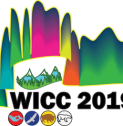
Media Release | THE 2nd WORLD INDIGENOUS CANCER CONFERENCE
Indigenous communities, consumers and health experts from around the world have come together at the opening of the second World Indigenous Cancer Conference (WICC) at the Calgary Telus Convention Centre in Canada.
-
$440 million funding boost for vital health and medical research for all stages of life
$6 million in research funding for three Indigenous health grants in the Northern Territory. This includes $2.5 million for an NHMRC Centre of Research Excellence at the Menzies School of Health Research to prevent and manage bronchiectasis, a lung disease which results in recurrent chest infections and is particularly common in Aboriginal and Torres Strait Islander people.
-
Menzies researcher endorses United Nations Statement
Dr Lisa Whop, Senior Research Fellow at the Menzies School of Health Research, Australia, endorsed the statement, calling for a sustained active commitment from the highest level of government to end this disparity.
-
When numbers and stories collide – the fight for Aboriginal and Torres Strait Islander women.
In 2018 my team hit the road to yarn with Aboriginal and Torres Strait Islander women who participate or never/rarely participate in cervical screening.
-
Indigenous HPV vaccination rates “to be celebrated”
Dr Whop said that with the introduction of the HPV vaccine, Australia was on track to be the first country in the world to eliminate cervical cancer.
-

Researchers call for global action to improve Indigenous health outcomes
A Menzies researcher is calling on the WHO and governments to prioritise improvements in cancer control for Indigenous people globally.
-
NT News | Traditional medicine helps patients
NT News report on traditional medicine research - page 5.
-
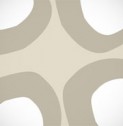
Systematic review of traditional and complementary medicine use among indigenous cancer patients
A review of traditional and complementary medicine use among Indigenous cancer patients across four countries has found that cancer patients continue to hold traditional medicine in high regard as they seek to cure and cope with their diagnosis
-

Indigenous women are less likely to survive breast cancer
Prof. Gail Garvey from @MenziesHealth explains why Indigenous women are less likely to survive breast cancer than other women
-
NT Aboriginal men fall behind in life expectancy
National Indigenous Times reports on a study, published in the Medical Journal of Australia, found that between 1967 and 2012 the difference in life expectancies for NT Aboriginal women and the wider Australian population declined by 4.6 years.
-

NITV: Two months' could be key to Indigenous women's survival of cervical cancer
NITV : A study lead by a young Torres Strait Islander research fellow finds that Indigenous women are not receiving the recommended 2-month clinical follow up on an abnormal pap test result.
-

Rising stars in pioneering health research celebrated
Menzies researcher Assoc Prof Gail Garvey was announced as the winner of the BUPA Health Foundation Emerging Health Researcher Award last night.
-

Roundtable to improve cancer outcomes
Some of the country’s leading authorities on cancer and cancer survivors themselves were a key part of a National Indigenous Breast Cancer Research Roundtable held in August 2014.
-
Study examines cancer survival statistics for Indigenous Australians
Cancer Council Queensland is calling for enhanced joint efforts to improve Indigenous cancer control following the release of research findings that cancer survival is lower for Indigenous than non-Indigenous Australians for all cancers combined, and for many specific types of cancer.
-

Indigenous kids face higher risk of childhood cancer death
Indigenous Australian children are 36 per cent more likely to die within five years of a cancer diagnosis than non-Indigenous Australian children, a landmark new report has found.
-
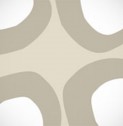
Walking together for Indigenous Cancer
Over 200 people walked in the inaugural Musgrave Park Cancer Walk at Musgrave Park, South Brisbane, on Sunday, 2 February 2014 to raise cancer awareness among Aboriginal and Torres Strait Islander people and encourage its prevention, detection, and treatment.
-

NITV: Murri community hosts walk for cancer
Cancer survivors from the Murri community and surrounding health organisations have participated in the inaugural walk for cancer in Brisbane's Musgrave Park.
-

Ehospice - Cancer myths fuel fear amongst Aboriginal and Torres Strait Islander peoples
Over 200 people joined together at Musgrave Park in Brisbane on Sunday 2 February ahead of World Cancer Day to raise cancer awareness, prevention, early detection and treatment for Aboriginal and Torres Strait Islander peoples.
-

National Indigenous News Service: Cancer awareness walk to be held in Brisbane
A number of health organisations in Brisbane are collaborating to hold an event to raise awareness and dispel myths about cancer among Indigenous Australians.


